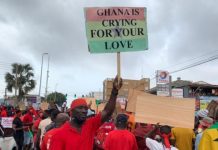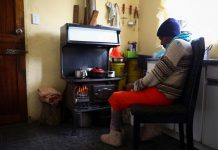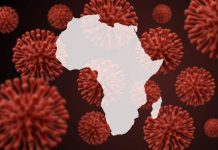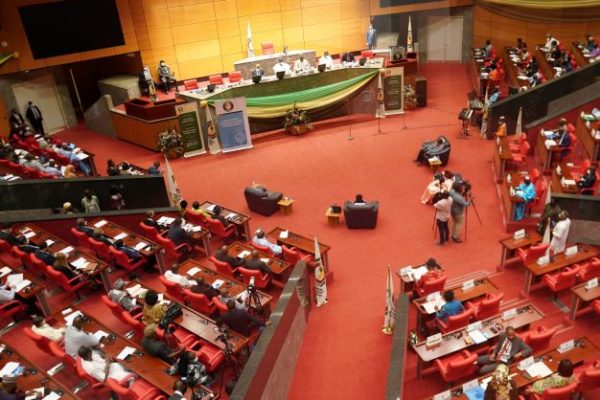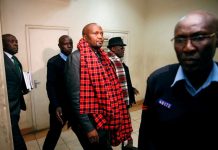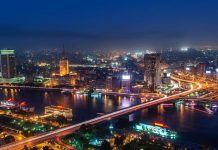I – Political Situation
Between December 2021 and May 2022, Guinea-Bissau went through political and institutional challenges, including the armed attack on the Government Palace on 1 February this year and the dissolution of the National People’s Assembly by the President of the Republic on 16 May.
On 1 February 2022, an armed group attacked the Government Palace, where the President was chairing a cabinet meeting, killing about ten persons, including soldiers, paramilitaries and civilians.
According to the country’s authorities, it was an attempted coup which was unsuccessful. However, in order to clarify matters, the government has set up an inter-ministerial committee to identify the culprits.
Civilians and senior officers have been arrested as part of an investigation by the Public Prosecutor’s Office, causing a commotion among Guinea-Bissau’s political class and civil society, some of whom disapprove of the detention procedure, others of the length of the detentions.
We look forward to the expeditious outcome of the proceedings so that the perpetrators of this act be brought to book.
On 16 May, the President decided to dissolve the National People’s Assembly because of what he deemed a serious institutional crisis. After the dissolution of the Assembly, the President set 18 December this year as the date for the next legislative elections.
Despite the dissolution of Parliament, government ought to remain in place to manage the day-to-day affairs of the country. However, the President decided, by decree, to appoint the same Prime Minister and to form a new government.
The new government is believed to be inclusive and all political parties represented in the Assembly were invited to join. Civil society leaders were also invited to participate in it. However, the majority party in the National Assembly, the PAIGC, declined the invitation and therefore did not participate in the government.
According to the Constitution of the Republic of Guinea-Bissau, in the event the National Assembly is dissolved, its members shall remain in office until the elected members of the next legislature are sworn-in.
During the period of dissolution, the Standing Committee of the National People’s Congress shall continue to function and oversee the work of the government and the public administration.
Other internal bodies of the National People’s Assembly, namely the Bureau, the Leaders’ Conference, Specialised Standing Committees and the Administration Council, shall remain in office until the elected members of the next legislature take office.
II- Security Situation
The security situation in Guinea-Bissau is of concern not only to the people of Guinea Bissau, but also to the international community, including the Economic Community of West African States (ECOWAS).
The emergence of armed groups terrorising citizens has assumed alarming proportions, given the difficulty of the defence and security forces to control and fully ensure the protection of the people of Guinea-Bissau. This situation is conducive to the perpetuation of violence, intimidation, kidnappings and attacks on journalists, civil rights defenders, trade union leaders and political party activists. The most obvious occurrence was on 1 February 2022.
On 3 February 2022, at the Extraordinary Summit held in Accra, Ghana, ECOWAS Heads of State and Government decided to send a stabilisation force to Guinea-Bissau to help the country to prevent such occurrences in the future.
However, this decision by the ECOWAS Summit has engendered heated debates and a controversy in the country, due to the interpretation of internal legal instruments relating to the arrival of foreign troops in the country without the prior approval of relevant bodies.
At the Extraordinary Session of the Mediation and Security Council held on 10 March in Accra, the ECOWAS Authority of Heads of State and Government, following a request by the authorities of Guinea-Bissau, decided to deploy a force to support the stabilisation of the country, known as the Stabilisation Support Mission in Guinea Bissau (MASGB).
Forces from various countries, including Senegal, Togo and Nigeria, have been stationed in Guinea-Bissau since mid-May this year.
The 12-month mandate of the mission is to:
- support the country’s defence and security forces to ensure the security of the President, appointed officials and the citizens of the Republic of Guinea-Bissau;
- protect civilians and improve the security situation in accordance with international humanitarian law.
The MASGB comprises 631 members, including:
- Eighteen members of the General Staff, including the commander of the force;
- A police unit comprising 140 police men and women;
- Three infantry companies of 400 soldiers;
- A level 2 hospital of 50 staffs; and
- A transmission section of 23 staffs.
The civilian component comprises a Head of Mission, in the person of the ECOWAS Resident Representative and his administration, assisted by two experts. Its core mission is to:
- Coordinate the political activities of the mission;
- Support the authorities of Guinea-Bissau in restoring trust, sustainable peace and in consolidating state authority.
- Provide advice and monitor the human rights situation.
III- Human Rights Situation
In Guinea-Bissau, the human rights situation is interwoven with security issues, which is rather worrying. Various entities, including the League for Human Rights in Guinea Bissau, have repeatedly drawn attention to the fact that impunity continues to be rife in the country, facilitating the constant violation of human rights in recent times.
These violations can be illustrated by some of the events that have occurred in the country in recent months, such as:
- kidnappings and brutal assaults on members of the National Assembly, political party activists, social rights defenders and ordinary citizens;
- assassination attempts and attacks by armed groups, with particular emphasis on the events of 1 February 2022 at Government Palace, which resulted in the death of a dozen citizens;
- Recurrent harassment, intimidation and threats against activists and leaders of civil society organisations, journalists and critical political analysts.
The government has been called upon on several occasions to strengthen its collaboration with civil society organisations and partners in order to change Guinea Bissau’s poor human rights reputation. We hope that with this partnership, the human rights situation will improve considerably as in previous years.
IV- Health Situation
The health situation in Guinea-Bissau is essentially dominated by the fight against COVID-19.
Since 24 March 2020, when the first cases of COVID-19 were confirmed, until the end of May 2022, a total of 8,202 positive cases, 7,528 recoveries, 497 active cases and 171 deaths have been officially recorded.
Meanwhile, the national mass vaccination campaign against COVID-19 in Guinea-Bissau started on 25 October 2021 and aims to reach 683,147 people aged 18 years and above throughout the country, with the aim of vaccinating 70% of the population, representing about two million inhabitants.
According to data from the High Commission for COVID-19 Control and WHO, by the end of May 2022, 341,700 people, representing 50% of the target population, have been fully vaccinated.
These data also indicate that approximately 82% have received at least one dose of the vaccine, representing 562,923 people, including 294,356 men and 268,567 women.
V- Status of Implementation of Community Texts
Since the last Country Report was presented in November 2021, no progress has been made with regard to the ratification of Community texts. Fourteen texts were approved by the National People’s Assembly and promulgated by the President of the Republic. This brings the number of ratified Community texts to 51 out of 54. There are only 3 texts left which are expected to be approved during the next legislature.
The texts concerned have to do with protocols relating to the following areas:
- Judicial sector – 1 text;
- Health sector – 1 text;
- Free movement of persons and goods – 1 text.
V.I – Payment of the Community Levy
The Memorandum of Understanding, reached in 2017, between the government of Guinea-Bissau and the ECOWAS Commission, concerning the payment of arrears and the piling up of new debts, has already been fully implemented by the authorities of Guinea-Bissau.
According to data from the Treasury and Public Accounting Directorate, the amount of arrears as per this memorandum of understanding amounts to 4.359 billion CFA francs. Out this amount, approximately 4.466 billion CFA Francs, corresponding to 102%, has been paid into the ECOWAS account at the Central Bank of West African States (BCEAO) by 31 December 2021.
As for the payment of the Community Levy for the current period, as usual, no delay has been noted and at the end of each month, the amount collected is regularly transferred into the ECOWAS Commission’s account at BCEAO in Bissau.
During the first quarter of this year, an amount of 103 million CFA francs was transferred, which is 100% of the amount collected by ECOWAS.
V.2– Free Movement of Persons and Goods
To facilitate the implementation of the provisions of its treaties, the Community has adopted Protocol A/P.1/5/79 of 1979 on the free movement of persons, the right of residence and establishment.
The Protocol has been implemented in a relatively satisfactory manner, despite some challenges encountered at the joint border posts between Guinea-Bissau and its neighbours, notably Guinea and Senegal.
To facilitate the implementation of this Protocol, a model ECOWAS identity card has been adopted. The issuance of this card to the citizens of Guinea-Bissau, which started in March 2018, is being consolidated and is running smoothly. Similarly, the issuance of the ECOWAS passport to the citizens of Guinea-Bissau is at a very advanced stage of implementation.
V.3- Equal Rights Between Women and Men
As mentioned in the last country report of November 2021, in Guinea-Bissau, much remains to be done in terms of equal rights between women and men, despite several laws adopted by the national Assembly.
It is common knowledge in Guinea-Bissau that most of the practices identified, having to do with physical, psychological, sexual and economic violence against women originate mainly in families, be it families of origin, host families or marital homes.
This negative trend in violence is essential in understanding how real domestic violence cases are underestimated in current reports on violence against women.
Recent cases recorded in the country are evidence of this gratuitous violence against women and girls. Mention can be made of the case of a woman who was murdered by her own husband because she was sick and could not prepare lunch. Another case concerns a girl who was murdered by her own father because she did not sleep at home.
National and international institutions must incorporate the prevention of and fight against gender-based violence into their programmes as a political, educational and financial priority in all aspects, such as:
- Enhanced legislation;
- Capacity building for health, judicial and victim support organisations and professionals;
- Enhanced victim identification and support systems;
- Enhancing knowledge and research in this area.
Since violence is generated in a cyclical or spiral manner, an act of violence can trigger another. Therefore, combating violence against women means combating violence in society as a whole, which requires dismantling the structural and cultural mechanisms that legitimise violence in its various forms.
Thank you for your attention!






